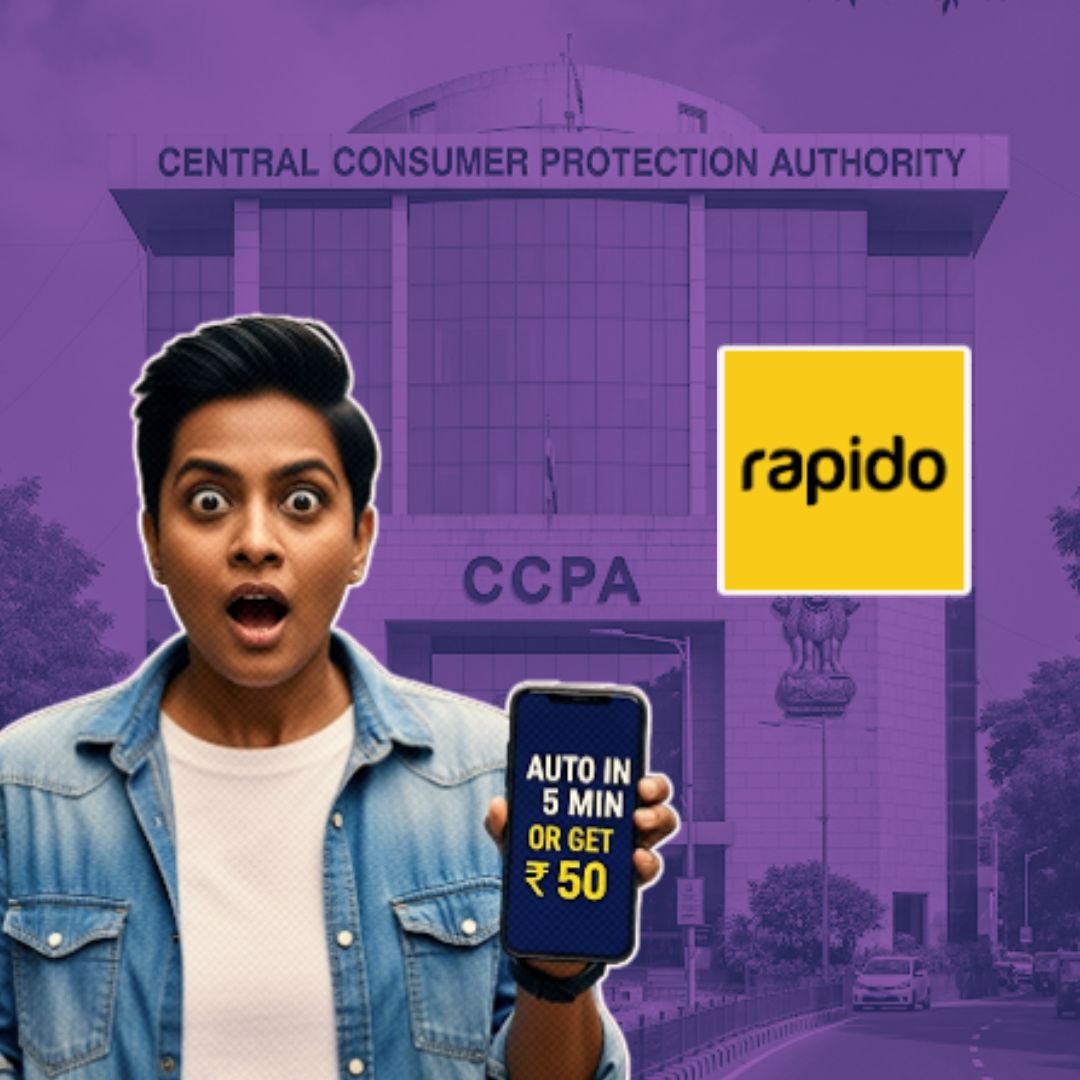The Central Consumer Protection Authority (CCPA) has taken a strong stance against ride-hailing operator Rapido by imposing a ₹10 lakh fine for misleading advertising and unfair trade practices.
This decisive action highlights the growing need for transparency and accountability among app-based service providers in India’s rapidly expanding digital economy.
Misleading Campaigns and Consumer Complaints
Rapido ran two major ad campaigns, ‘Guaranteed Auto’ and ‘Auto in 5 min or get Rs 50’, promising customers assured auto-rickshaw availability within five minutes or a monetary compensation in case of delays. However, the CCPA found these campaigns deceptive on multiple counts.
The promised ₹50 compensation was often paid out in the form of ‘Rapido coins’ usable only for bike rides and expiring within seven days, restricting consumer freedom. Additionally, the guarantee was made by individual drivers rather than Rapido itself, a crucial detail buried in illegible fine print.
Consumer complaints surged alongside these misleading promotions. Between June 2024 and July 2025, Rapido received 1,224 complaints, more than double the previous period’s figure of 575. Many users reported non-refunds, confusing terms, and poor service reliability. These complaints triggered the CCPA’s suo motu investigation headed by Chief Commissioner Nidhi Khare, who described such practices as eroding consumer trust and violating the Consumer Protection Act, 2019.
Regulatory Findings and Directions
After a detailed probe, the CCPA directed Rapido to immediately cease the misleading advertisements and compensate consumers fairly without hidden conditions. The ₹10 lakh fine serves both as punishment and deterrent in a marketplace witnessing increasingly aggressive marketing strategies.
The authority also mandated Rapido to submit a compliance report within 15 days, detailing steps taken to reimburse affected users and reform advertising practices. This report will be crucial in ensuring the company’s adherence to consumer law going forward.
A Broader Context: Protecting Consumers in a Digital World
Rapido’s penalty highlights broader challenges faced by regulators as mobility platforms become integral to daily life. While digital services offer convenience and innovation, they also raise concerns about opaque pricing, unclear refund policies, and aggressive promotions that may mislead vulnerable users. Data from the National Consumer Helpline shows numerous unresolved grievances relating to such app-based services, underscoring the need for sweeping reforms and strict enforcement.
The Consumer Protection Act of 2019 empowers the CCPA to take suo motu action against unfair trade practices, reflecting the evolving regulatory framework designed to safeguard consumers in the digital age. As ride-hailing and delivery platforms proliferate, the watchdog’s intervention in cases like Rapido’s sends a clear message that consumer welfare will not be compromised for market expansion.
Expert Advice on Consumer Safety and Digital Services
Consumer law specialists advise consumers to carefully read the fine print on digital promotions, understand all terms before accepting offers, and keep records of transactions and communications. She urges companies to prioritise honest, clear advertising to build trust and encourages consumers to report unresolved issues to authorities like the CCPA promptly.
The Logical Indian’s Perspective
This episode underscores the imperative for companies to adopt ethical marketing grounded in honesty and clarity. Digital platforms must move beyond flashy promises and ensure their commitments are legally and ethically sound. At the same time, consumers need awareness and vigilance to demand transparency and hold providers accountable.
The Logical Indian believes that this ruling is a positive step toward fostering trust and fairness in India’s digital services ecosystem. As consumers reap the benefits of technology-driven convenience, it is equally vital that their rights and expectations are respected without compromise.











